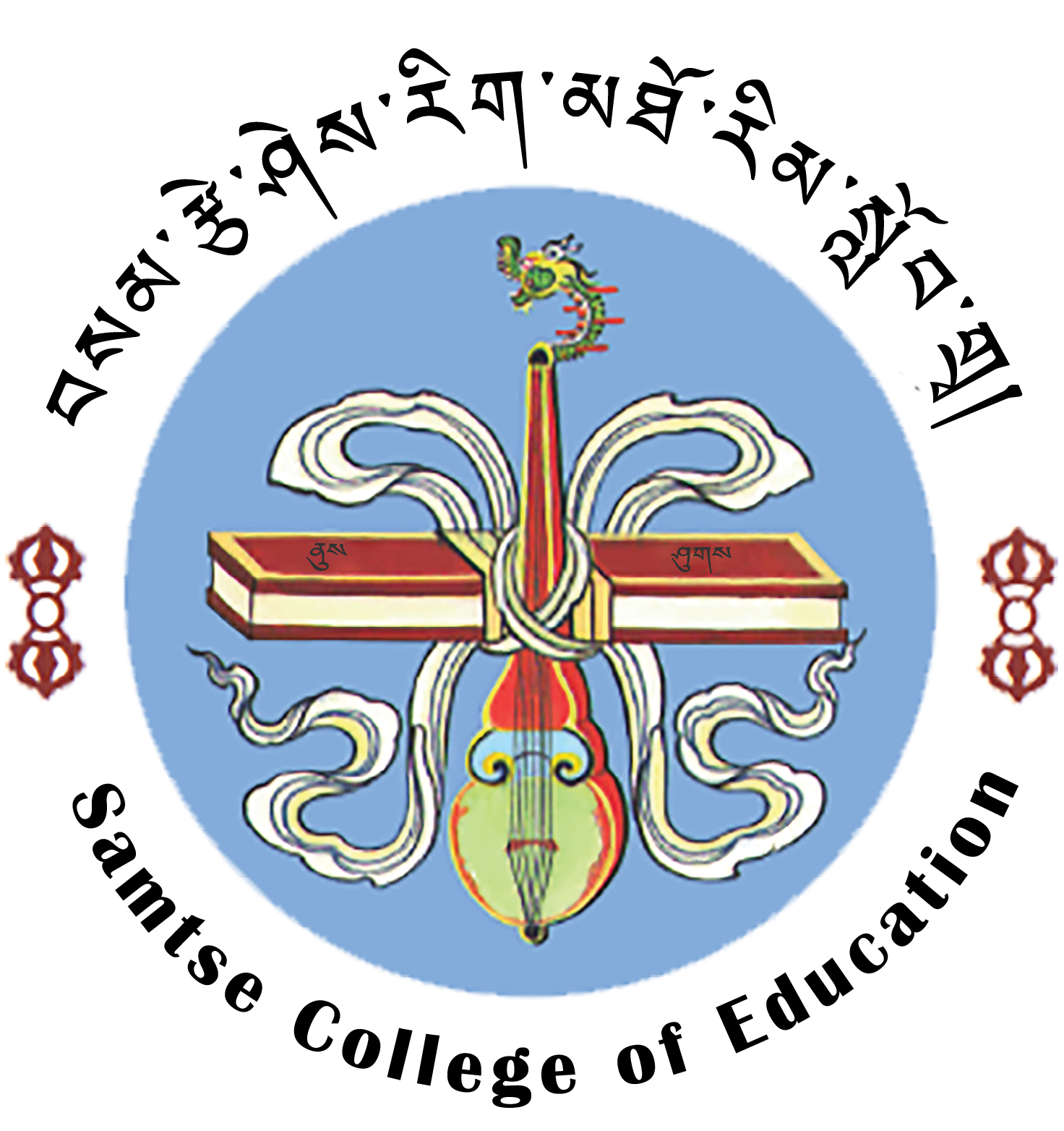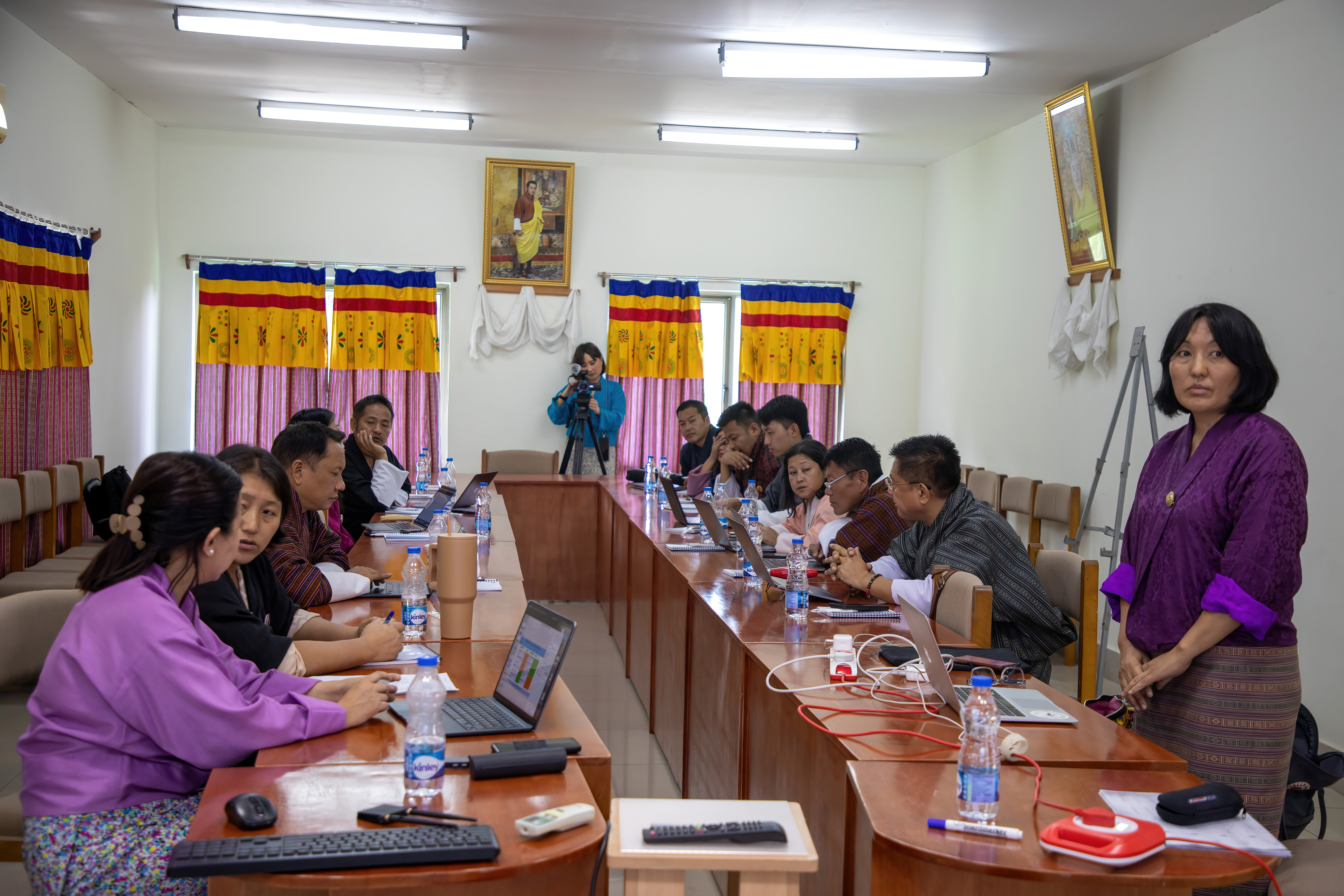National Steering Committee Convenes to Discuss GESI Project Progress and Way Forward
Samtse, 5 June 2025 – A National Steering Committee meeting for the project “Promoting Gender Equality and Social Inclusion: Building on What Children Value and Aspire to Do and Be” was held on 5th June 2025 at Samtse College of Education. The meeting brought together a diverse group of key stakeholders committed to advancing gender equality and social inclusion (GESI) in Bhutan.
Participants included policymakers, curriculum developers, gender and child focal point, the Community-Based Support Service focal point, the Chief Programme Officer of the Women and Children Division at the National Commission for Women and Children (NCWC), the Centre Manager from RENEW, Chief Dzongkhag Education officer, the Assistant Programme Officer from the School Liaison and Coordination Division, and representatives from development partners and media personals.
The meeting began with a knowledge-sharing session on the Situational Analysis Study (SAS) and baseline study findings. These results sparked a robust open discussion among the stakeholders. Participants responded positively to the findings and appreciated the evidence-based approach of the project.
However, some participants highlighted areas for further exploration. One stakeholder noted that the study could be strengthened by including the perspectives of LGBTQ+ individuals to ensure a more comprehensive understanding of social inclusion, further highlighting that any interventions that the project plans to implement can cater to their specific needs. Others inquired whether issues such as violence, bullying, and discriminatory practices were captured in the research framework.
One of the participants highlighted that, given the project is being implemented in Samtse, there is a need to address pressing local issues, namely teenage pregnancy and suicide rates, which are reportedly the highest compared to other Dzongkhags. While the project members clarified that the primary aim of the project is not to specifically target these issues, they mentioned that such concerns will be addressed to some extent through relevant LIKE club activities.
Participants also expressed appreciation for the formation of the LIKE Clubs, noting that the concept was timely and the activities designed for the clubs appeared to be effective in promoting students’ valued educational capabilities and aspirations. Some participants further suggested that existing clubs in schools,, which are reportedly not functioning effectively, could be merged and integrated into the LIKE Club framework to enhance efficiency and impact.
Considering the LIKE clubs are scheduled to begin operating in the five participating schools starting in July, participants were also actively engaged in reviewing the club manual and activities, offering constructive feedback to enhance their relevance and effectiveness.
Dr. Kinley Seden, Project Coordinator noted that in order to bring about meaningful change and address critical issues related to gender equality and social inclusion, efforts must begin with the school curriculum. Research seems to indicate that the integration of gender elements in the Bhutanese curriculum remains limited. In response, one of the participants agreed and emphasized the need for a more deliberate and systematic inclusion of gender perspectives across all subjects.
They noted that the findings from the study should not be confined to a few selected subjects but should be integrated into all subject areas. To support this, one participant recommended convening a dedicated workshop involving all curriculum developers to facilitate the integration process and help teachers embed GESI principles effectively into the school curriculum across all subjects.
The meeting concluded with a discussion on the way forward, emphasizing the need for greater collaboration among the stakeholders. It was agreed that working as a cohesive team to develop a strategic plan would be essential to expanding the project’s reach into communities, not just to raise awareness, but to bring about meaningful and sustainable change.
The project team and stakeholders reaffirmed their commitment to advancing GESI initiatives by leveraging shared expertise, resources, and networks.






